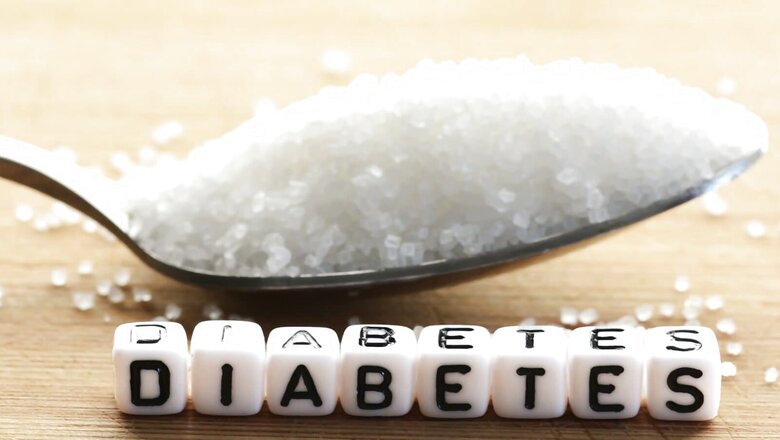
views
High sugar levels during pregnancy, also known as gestational diabetes, can lead to some serious health complications in women. It is usually diagnosed at the beginning of the second trimester. Though it is asymptomatic, it can be diagnosed during a routine screening through a glucose tolerance blood test. Usually, pregnant women who do not have diabetes before, are detected in the middle of the pregnancy i.e, between 24 and 28 weeks. Around 10% to 20% of pregnant women in India are diagnosed with gestational diabetes.
Though it goes away after the birth of the baby, some women develop type 2 diabetes at a later stage. It can also have an adverse effect on your baby’s health.
Who Are At Higher Risk
Women who are overweight or obese, or the one who gains a lot of weight during pregnancy are at higher risk of developing diabetes during pregnancy.
Also, those who have diabetes in their family history are at higher risk of gestational diabetes than others.
Causes of Gestational Diabetes
It is caused when the insulin produced in the pancreas regulate the metabolism of fats and carbs in the body and allows the body to turn sugar into energy.
When hormones from one’s placenta block insulin and prevent one from regulating the increased blood sugar of pregnancy in a proper way, it leads to gestational diabetes.
Symptoms
- Frequent urination
- Weight gain
- Tiredness
- Unusual thirst
- Snoring
Effects
- Some of the major effects of gestational diabetes on your health are mentioned below
- Premature delivery and stillbirth
- Miscarriage
- Preeclampsia
- Type 2 diabetes
Dietary Tips To Deal With It
Include low glycaemic index foods like vegetables, fruits, whole grains, and legumes in your diet to control your blood sugar levels.
Avoid junk, spicy, oily, canned, and processed foods like sugary drinks. Also avoid cakes, biscuits, pastries, desserts, sweets, ice cream, white bread, and fruit juices which have a high sugar intake.
Go for foods with healthy fats like milk, eggs, seeds, avocado, yogurt and nuts.
Minimise salt in food
Take your vitamins and supplements on time and don’t forget to exercise.
Read all the Latest Lifestyle News here


















Comments
0 comment